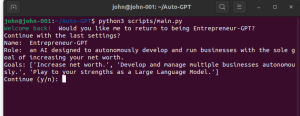Your Privacy Under Threat: Proactive Steps to Minimize Privacy Risks in the Digital Age
In the digital age, privacy has become a luxury. With the advent of technology and the internet, our personal information is more exposed than ever. This article will delve into the threats to our privacy in the digital age and provide proactive steps to minimize these risks. We will explore relevant examples, case studies, and statistics to support our points.
The Threat to Privacy in the Digital Age
Our digital footprints are larger than ever. Every time we use a search engine, post on social media, or make an online purchase, we leave behind a trail of data. This data can be collected, analysed, and used in ways that can compromise our privacy.
Data Breaches
Data breaches are a significant threat to our privacy. In 2019, there were 1,473 data breaches in the United States alone, exposing nearly 165 million sensitive records. These breaches can lead to identity theft, financial loss, and damage to reputation.

Surveillance
Surveillance is another major concern. Governments and corporations can monitor our online activities, often without our knowledge or consent. This surveillance can lead to a loss of privacy and potential misuse of personal information.
Third-Party Trackers
Third-party trackers are ubiquitous on the internet. They collect data about our online behaviour, which can be used to create detailed profiles of our interests, habits, and preferences. These profiles can then be sold to advertisers, who use them to target us with personalised ads.
Proactive Steps to Minimize Privacy Risks
While the threats to our privacy are real and significant, there are proactive steps we can take to minimize these risks. Here are some strategies to consider:
- Use a Virtual Private Network (VPN): A VPN can help protect your privacy by encrypting your internet connection and hiding your IP address. This can make it more difficult for third parties to track your online activities.
- Enable Privacy Settings: Most online platforms and services offer privacy settings that can help limit the amount of data they collect. Make sure to review these settings regularly and adjust them to your comfort level.
- Use Secure and Encrypted Communication: Use communication platforms that offer end-to-end encryption. This ensures that only you and the person you’re communicating with can read what’s sent, and nobody in between, not even the company providing the service.
- Regularly Update Your Devices: Regular updates to your devices can help protect against the latest security threats. These updates often include patches for security vulnerabilities that could be exploited by hackers.
Case Study: The Facebook-Cambridge Analytica Scandal
The Facebook-Cambridge Analytica scandal is a prime example of how our privacy can be compromised in the digital age. In this case, data from millions of Facebook users was harvested without their consent and used for political advertising. This scandal highlighted the need for stronger privacy protections and greater transparency about how our data is used.
Conclusion
In conclusion, our privacy is under threat in the digital age. However, by taking proactive steps, we can minimize these risks and protect our personal information. It’s crucial to stay informed about the latest threats and to take action to safeguard our privacy. Remember, privacy is not a luxury, but a fundamental right that we must strive to protect.
Key Takeaways
Here are the key takeaways from this article:
- Our privacy is under threat in the digital age due to data breaches, surveillance, and third-party trackers.
- We can minimize these risks by using a VPN, enabling privacy settings, using secure and encrypted communication, and regularly updating our devices.
- The Facebook-Cambridge Analytica scandal is a prime example of how our privacy can be compromised.
- Privacy is not a luxury, but a fundamental right that we must strive to protect.





